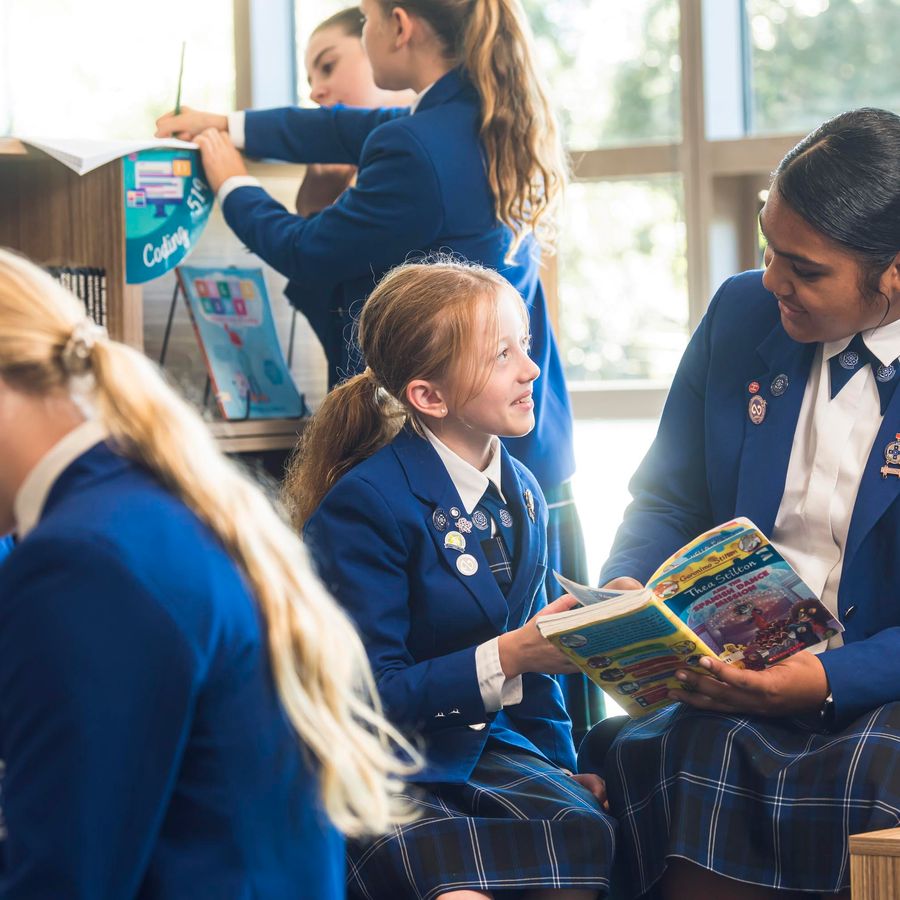Young men and women. Years 11 – 13 (Ages 15-18)
In Senior School, young men and women come together in a co-educational setting, where interpersonal skills develop and visions of after-school life and career take form. Our expectations of our students are high. We dedicate ourselves to preparing them for their future.
Academic Pathways
A choice of academic pathways is available to our senior students. In Year 11, all students embark on the NCEA Level 1 qualification. In Years 12 and 13, our students are privileged to select from two prestigious academic pathways: the International Baccalaureate (IB) Diploma or the New Zealand qualification, and the NCEA (National Certificate of Educational Achievement).
Curriculum Opportunities
Our curriculum features a broad range of subjects where every student will find something they love. This broad range of subjects, coupled with our test and examination timetables, will prepare our young men and women to secure coveted spots at leading universities in New Zealand and worldwide. Our Senior School students will emerge well-prepared for life after College.
Our exceptional faculty, specialised learning environments and rich academic and co-curricular opportunities will empower the next generation with the knowledge and the skills they need to succeed.
A copy of our Course Handbook, 'Empowering Through Knowledge' will give you comprehensive information about our core curriculum and elective subjects available at each Year level.
National Certificate of Educational Achievement (NCEA)
NCEA is New Zealand's national qualification for senior students and is offered by almost all secondary schools in New Zealand. NCEA comprises different levels of qualifications, ranging from Level 1 to Level 3. Students are assessed on their mastery of subjects, with each topic having achievement standards. Some assessments occur internally throughout the academic year, while others are conducted externally through the New Zealand Qualifications Authority (NZQA) examinations at the year's end. Successful assessments earn credits toward certificates at Level 1, Level 2, or Level 3, with most subjects offering 16-20 credits.
Each subject contains a set number of achievement standards with varying credit values. Students are assessed at four levels: Not Achieved, Achieved, Merit, and Excellence. Students who earn sufficient credits at the Merit (50 credits or above) or Excellence level have these distinctions recognised on their certificates. In addition to NCEA, our students can pursue the prestigious International Baccalaureate (IB) Diploma in their final two years of senior school.
We are immensely proud of our students' performance across all three NCEA Levels. Their consistent year-on-year improvement has solidified Saint Kentigern's position among the top-performing colleges in the country.
The International Baccalaureate (IB)
The IB is a two-year course that leads to a globally recognised qualification. Since its introduction, our students have consistently achieved outstanding results. We're proud to report a record number of candidates taking exams in 2023, with growing enrolment for 2024.
Established in 1968, the IB nurtures an inquiring mindset, and prepares students for a meaningful life and a successful career. The IB is ideal for independent learners, specifically those intending to attend universities abroad.
An IB student undertakes six subjects, one selected from each subject group. Three subjects are studied at the higher level and three at the standard level. One of the subjects must be a second language.
The diploma has three compulsory core requirements. Students must complete a formal Extended Essay (EE), a course in Theory of Knowledge (TOK) and participate in Creativity, Activity and Service (CAS) across the two years.
What does the 'Higher Level' and 'Standard Level' mean?
Each of the three Higher Level courses represents 240 teaching hours. Standard Level courses represent 150 teaching hours.
How are students assessed?
IB subjects are assessed by combining internal assessment coursework and external examinations at the end of the two-year program.
For further details, download the Senior School Course Handbook for IB.
For comprehensive information about the International Baccalaureate Organisation Worldwide, please visit their website.








